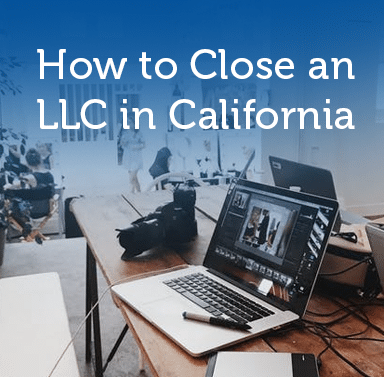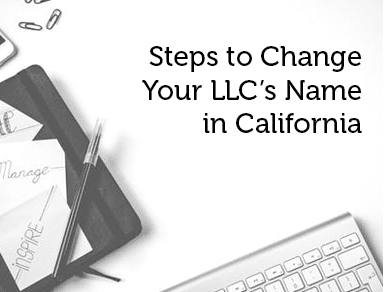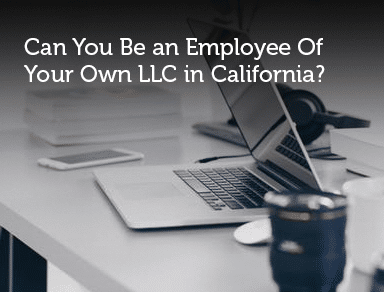More About Limited Liability Companies
Set up an LLC for Your Online Business: Understanding the Basics
Starting an online business is an exciting venture, but it’s crucial to establish a solid legal foundation. One of the most popular and efficient ways to do this is by forming a Limited Liability Company (LLC). An LLC is a business structure that offers flexibility and protection for entrepreneurs. It combines the liability protection of a corporation with the tax benefits and operational flexibility of a partnership or sole proprietorship.
Although the path of establishing an LLC wasn’t clear for Emma and her online business at first. Let’s expand on Emma’s background and her journey with her online boutique, providing more depth to her story within the context of forming and managing her LLC.
The Entrepreneurial Journey of Emma: Building a Successful Online Boutique
Early Beginnings: A Passion for Fashion
Emma’s journey into the world of online business started with her innate passion for fashion and design. Growing up, she was always the go-to person for style advice among her friends and family. She had an eye for trends and a dream of starting her own fashion line. After completing her degree in fashion design, Emma worked in various retail and design roles, gaining valuable experience in the industry.
The Idea That Sparked a Venture
The idea for an online boutique came to Emma when she noticed a gap in the market for affordable yet stylish and quality clothing for young professionals. She wanted to create a platform that offered a curated collection of unique pieces, accessible to fashion-forward individuals who valued both style and budget-friendliness.
Taking the Plunge: From Concept to Reality
With her savings and a small loan from a family member, Emma began her entrepreneurial journey. She started by setting up a simple website and sourcing her initial inventory from small designers and local vendors who shared her vision for affordable fashion. She named her boutique “Emma’s Chic Boutique,” reflecting her personal touch and commitment to chic, accessible fashion.
Facing Challenges: The Need for Legal Protection
As Emma’s boutique started gaining traction online, she encountered her first major challenge. Another online store with a similar name threatened legal action, alleging trademark infringement. This experience was a wake-up call for Emma. She realized the importance of not only protecting her brand but also her personal assets. That’s when she began researching business structures, leading her to the decision to form an LLC.
Forming ‘Emma’s Chic Boutique LLC’: A Smart Move
Emma chose to form an LLC for several reasons. The LLC structure allowed her to protect her personal assets from any business liabilities and offered more flexibility in managing her business. She followed the necessary steps: choosing a business name (carefully researching for trademark issues this time), registering her business, drafting an operating agreement, and understanding her tax obligations.
Growing Pains and Successes
With her LLC formed, Emma’s business continued to grow. She expanded her inventory, started collaborations with influencers, and even began offering personalized styling services. However, with growth came new challenges, like managing a growing customer base, navigating state-specific regulations as she expanded her shipping range, and adjusting her business plan to stay competitive and profitable.
Looking to the Future: Emma’s Vision
Today, Emma’s Chic Boutique LLC is a thriving online business with a loyal customer base. Emma’s journey highlights the importance of legal and financial planning in entrepreneurship. Her story is a testament to the resilience and adaptability required to succeed in the competitive world of online retail.
What is an LLC for an Online Business?
An LLC is a legal entity that separates your personal assets from your business assets, offering protection against personal liability. This means that in cases of business debts or lawsuits, your personal assets (like your home or car) are typically protected. This protection can be crucial in deciding whether to form an LLC for an online business.
Why Choose to Form an LLC for Your Online Business?
- Personal Asset Protection: LLCs provide a shield for your personal assets from business liabilities.
- Tax Advantages: LLCs can opt for different tax treatments, potentially leading to significant savings.
- Flexibility: Unlike corporations, LLCs have fewer record-keeping requirements and more management flexibility.
- Credibility: Forming an LLC can enhance your business’s credibility with customers and potential investors.
LLC Step-by-Step Guide: Business Name, Business License, LLC Operating Agreement
Step 1: Choose Your State
Deciding where to form your LLC is crucial. While you might consider forming it in your home state, some states like Delaware or Wyoming offer business-friendly environments.
Step 2: Name Your LLC
Your LLC’s name should be unique and adhere to your state’s naming requirements. It’s also a chance to create a strong brand identity.
Step 3: File the Articles of Organization
This critical step involves filing a document with your state to officially form your LLC for your online business. It typically includes details like your LLC’s name, address, and the names of its members.
Step 4: Create an Operating Agreement
Although it is not mandatory in every state, an operating agreement is crucial. It outlines the ownership and operating procedures of your LLC, helping to prevent future conflicts.
Step 5: Obtain Licenses and Permits
Depending on your business type and location, you may need specific licenses and permits to operate legally.
Step 6: Register for Taxes and Open a Bank Account
You’ll need to obtain an EIN (employer identification number) and open a business bank account to keep your personal and business finances separate.
Client Story: Emma’s Decision to go with an LLC for her Online Boutique
Emma’s decision to form her LLC in California was influenced by several factors unique to California. California is known for its large and diverse consumer base and offers a vast market potential for businesses like Emma’s Chic Boutique. The state’s prominence in fashion and technology also provides an advantageous environment for online retail businesses.
Additionally, California’s network of suppliers, fashion influencers, and potential collaborations could further aid in the growth and visibility of her brand. However, Emma was also aware of the specific legal and tax implications of forming an LLC in California, including the state’s annual franchise tax and various regulations. Despite these challenges, the strategic benefits of tapping into California’s dynamic and expansive market outweighed the potential drawbacks, making it a suitable choice for the foundation of her LLC.
Key Takeaways
An LLC is an excellent choice for online businesses, offering personal asset protection, tax benefits, and operational flexibility. The process of forming an LLC includes choosing a state, naming the LLC, filing the Articles of Organization, creating an operating agreement, obtaining necessary licenses, and setting up tax registrations and a business bank account.
Next, we will delve deeper into the nuances of managing an LLC, including tax implications and legal considerations. Stay tuned for more insightful information on making the most of your LLC for your online business.
Managing Your LLC: Tax Implications and Legal Considerations for an Online Business
Understanding LLC Tax Classification
One of the most significant advantages of an LLC is its flexible tax structure. Unlike corporations, LLCs are not subject to corporate income tax. Instead, they are typically taxed as “pass-through” entities, meaning the profits and losses of the business pass through to the owners’ personal tax returns. However, LLCs can also choose to be taxed as an S-corporation or C-corporation if it’s more beneficial.
Keeping Compliant with State Laws
Compliance is key in maintaining the advantages of your LLC. This includes filing annual reports, maintaining good records, and adhering to state-specific regulations. For instance, the requirements and consequences of corporation or LLC compliance in California can differ significantly from other states.
Handling Ownership Changes
Transferring ownership in an LLC can be simpler than in a corporation. However, it’s important to understand the implications and process. For a detailed guide, refer to how to change or transfer ownership in an LLC.
Client Story Continued: Expanding Emma’s Boutique
As Emma’s Chic Boutique LLC flourished, the increasing demands and opportunities prompted Emma to consider expanding her leadership team. Recognizing the value of collaboration and additional expertise, she decided to bring in a partner to help steer the business towards greater heights. Emma referred to the operating agreement she had meticulously prepared during the formation of her LLC. This document outlined the procedures for changes in ownership and management, ensuring that such transitions could be handled efficiently and legally. By adhering to these guidelines, Emma was able to smoothly integrate her new partner into the business, transferring partial ownership in a way that was transparent and compliant with the LLC’s established structure. This strategic move not only diversified the management of her boutique but also reinforced the importance of having a well-structured and flexible operating agreement that could accommodate the evolving needs of her growing business.
Dissolving an LLC
There may come a time when you need to close your LLC. Following the correct procedure is essential to avoid legal and financial issues. Learn more about how to close an LLC in California and why doing it wrong could cost you.
Key Takeaways
- An LLC’s tax classification offers flexibility, potentially leading to significant tax benefits.
- Compliance with state laws and regulations is crucial for maintaining the integrity and benefits of your LLC.
- Understanding the process of ownership transfer and dissolution is important for the smooth operation and eventual closure of an LLC.
In the next section, we will explore the intricacies of LLC formation in specific states, highlighting the unique advantages and considerations of each. Stay tuned to deepen your understanding of how to tailor your LLC formation to your business’s specific needs.
Tailoring Your LLC to State-Specific Needs
Choosing the Right State for Your LLC
The state in which you form your LLC can significantly impact your business, from tax implications to legal requirements. Some entrepreneurs choose to form their LLCs in states like Delaware or Nevada due to favorable business laws and tax policies. However, forming your LLC in the state where you primarily conduct business is often the most straightforward option.
California-Specific Considerations for an LLC for an Online Business
For those operating in California, understanding state-specific requirements is crucial. The state mandates specific filings, such as the Articles of Organization, and compliance with particular laws. The purpose of a Limited Liability Company in California details these requirements and how they apply to your business.
LLC Taxation in California
Taxation for LLCs in California includes state-specific fees and considerations. Understanding how an LLC is taxed in California is essential for effective financial planning and compliance.
Client Story Continued: Navigating State Regulations
As Emma expanded Emma’s Chic Boutique LLC into several cities in California, she encountered the unique landscape of LLC taxation in the state. California poses specific challenges for LLCs, notably the annual franchise tax, which applies to all LLCs regardless of income, and an additional fee based on total annual income. Understanding the complexities of these tax structures was crucial for Emma to maintain compliance and financial efficiency. She diligently consulted resources and professionals knowledgeable in California’s business and tax laws, ensuring that her business met all state-specific requirements. This proactive approach not only helped Emma avoid potential legal pitfalls but also allowed her to explore and leverage any state-specific tax benefits or incentives that could be applicable to her expanding online store. Her commitment to staying informed and compliant with state laws was key in successfully navigating the challenges of operating in California’s dynamic but regulated market.
LLCs for Rental Properties
Forming an LLC can offer added liability protection and tax benefits if you own rental properties. For insights into forming an LLC for rental properties, especially in California, check out why you should form an LLC in another state for your California rental property.
Key Takeaways
- The choice of state for forming your LLC can have significant legal and tax implications.
- In California, specific requirements and benefits apply to LLCs, which are essential to understand for compliance and optimization.
- For rental property owners, forming an LLC can provide additional benefits and protections.
In the next section, we will delve into the differences between LLCs and other business entities, helping you make an informed decision about the best structure for your online business. Stay tuned for a comprehensive comparison of LLCs, S-Corporations, and more.
Start an LLC for an Online Business: Comparing LLCs with Other Business Structures
LLC vs. Sole Proprietorship
Sole proprietorships are the simplest form of business entity, but they offer no personal liability protection. In contrast, LLCs provide liability protection, separating personal and business assets. This is crucial for online businesses, where legal disputes can arise unexpectedly.
Sole Proprietorship vs LLC for an Online Business
Honestly, our recommendation for many online businesses is going to be go with the LLC. The online world can offer so much opportunity but also so much liability (especially with data collection). Each business and situation is different, but the liability protection is just such a huge upside its hard to ignore choosing an LLC for an online business.
LLC vs. Partnership
A partnership is similar to a sole proprietorship but with multiple owners. Like sole proprietorships, partnerships do not offer liability protection, unlike LLCs.
LLC vs. Corporation (S-Corp and C-Corp)
Corporations offer liability protection but with more complex structures and tax implications. S-Corps and C-Corps differ in taxation; S-Corps are similar to LLCs with pass-through taxation, while C-Corps are taxed separately from their owners. LLCs provide a more flexible and less complex alternative, especially beneficial for smaller or online-based businesses.
Explore a comparison between an LLC and an S Corporation for a detailed comparison.
Client Story Concluded: Emma’s Decision
After researching different business structures, Emma concluded that an LLC was the most suitable for her online boutique. The liability protection and tax benefits aligned with her growth and financial stability goals.
Changing Your LLC’s Business Name
Understanding the process is vital if you ever need to rebrand or change your business name. Learn the steps to change your LLC’s name in California to ensure a smooth transition.
Choosing an LLC for an Online Business in California
Forming an LLC for your online business is a strategic decision that offers numerous benefits, including liability protection, tax advantages, and operational flexibility. By understanding the different aspects of LLC formation and management, you can set your online business on a path to success.
Remember, each business is unique, and consulting with professionals for legal and financial advice is always recommended. If you’re considering forming an LLC for your online business or have any questions, please contact us for a consultation. We’re here to help you navigate the complexities of business formation and ensure your success in the digital marketplace.













